Heroes & Villains: Three Films Starring Jet Li (1995-98)
Three 1990s martial arts films starring Hong Kong legend Jet Li...
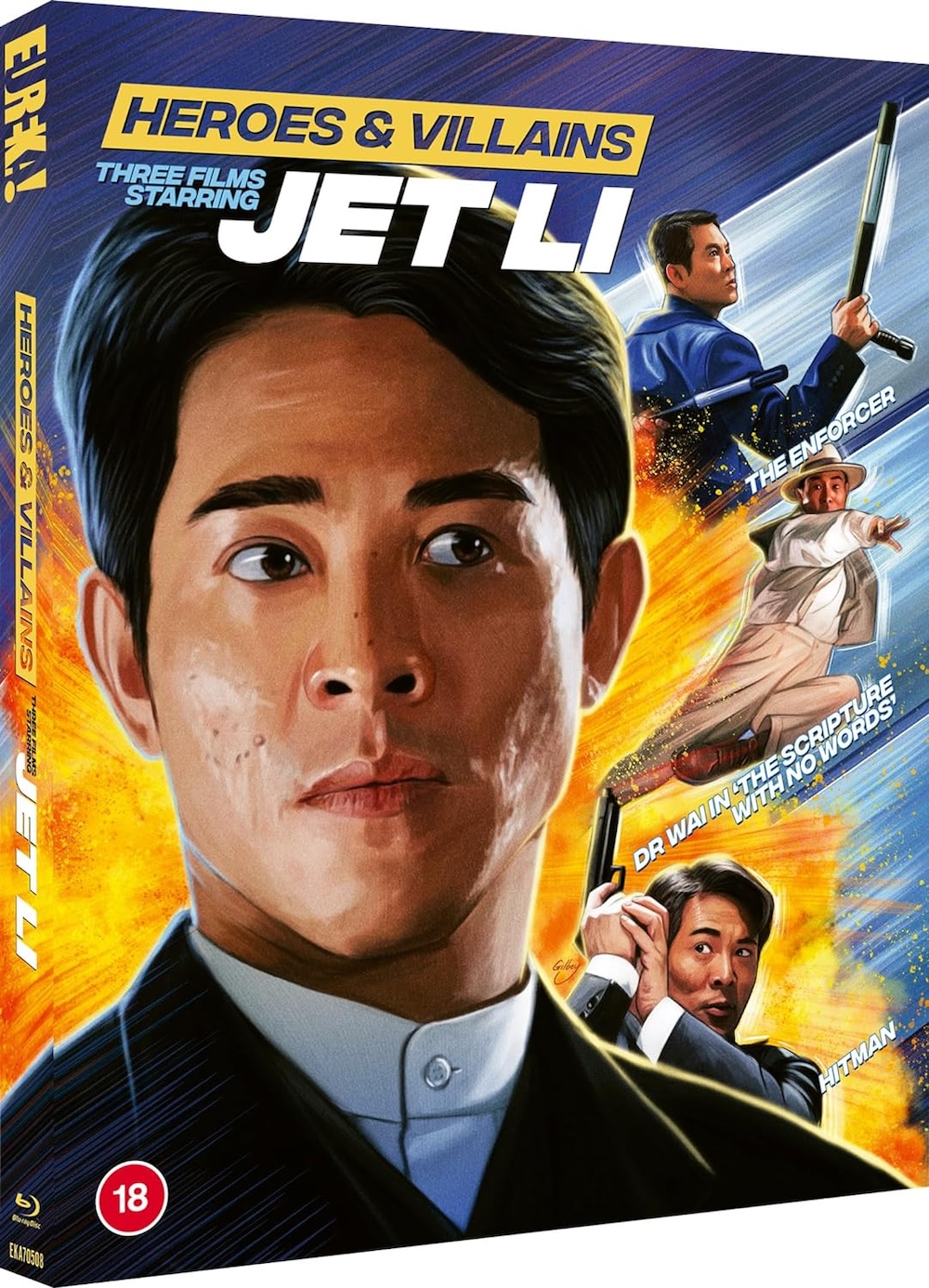
Three 1990s martial arts films starring Hong Kong legend Jet Li...


Jet Li ranks among the top three (or four) martial arts superstars to emerge from Hong Kong’s action movie industry. This box set from Eureka Entertainment showcases his acting range and acrobatic stunt skills in a variety of roles with three (or four) films from his heyday. The collection features two contemporary crime thrillers bracketing two different versions of a period fantasy adventure set in the 1930s. Many fans consider these movies to mark the end of an era for Li as he began transitioning from the purist kung fu genre toward mainstream international stardom.
According to IMDb, he was paid a mere CN¥ 1 per day for his debut in Shaolin Temple (1982), which he made at the age of 19, shortly after retiring from competitive martial arts, having won five Chinese national Wushu championships and mastering several Shaolin forms. He’s often credited with popularising the sport and upping the intake of the real Shaolin Temple.
By the mid-1990s, when he was filming the movies featured in this collection, his evident star power and physical prowess had catapulted his salary into the seven-figure range. He then had his pick of projects and was probably best known for his recurring role as the legendary hero Wong Fei Hung in Tsui Hark’s Once Upon a Time in China trilogy (1991-92). One gets the sense that he was searching for something that would propel his career in new directions, and these three classics, while not necessarily his very best, showcase the broad spectrum of his talents—dynamic martial arts, of course, acrobatic physical acting, and comedic timing, to be sure, but he also has the ability to move us with moments of emotional depth. Several career highlights were to follow, including Zhang Yimou’s lauded historical epic Hero (2002), Louis Leterrier’s solo-directorial debut Unleashed (2005), written and produced by Luc Besson, and the Ronny Yu-directed Fearless (2006)—three films that the actor believes encapsulate his later acting career, with Hero and Fearless still ranking in the Top 10 most successful foreign-language films in the US.
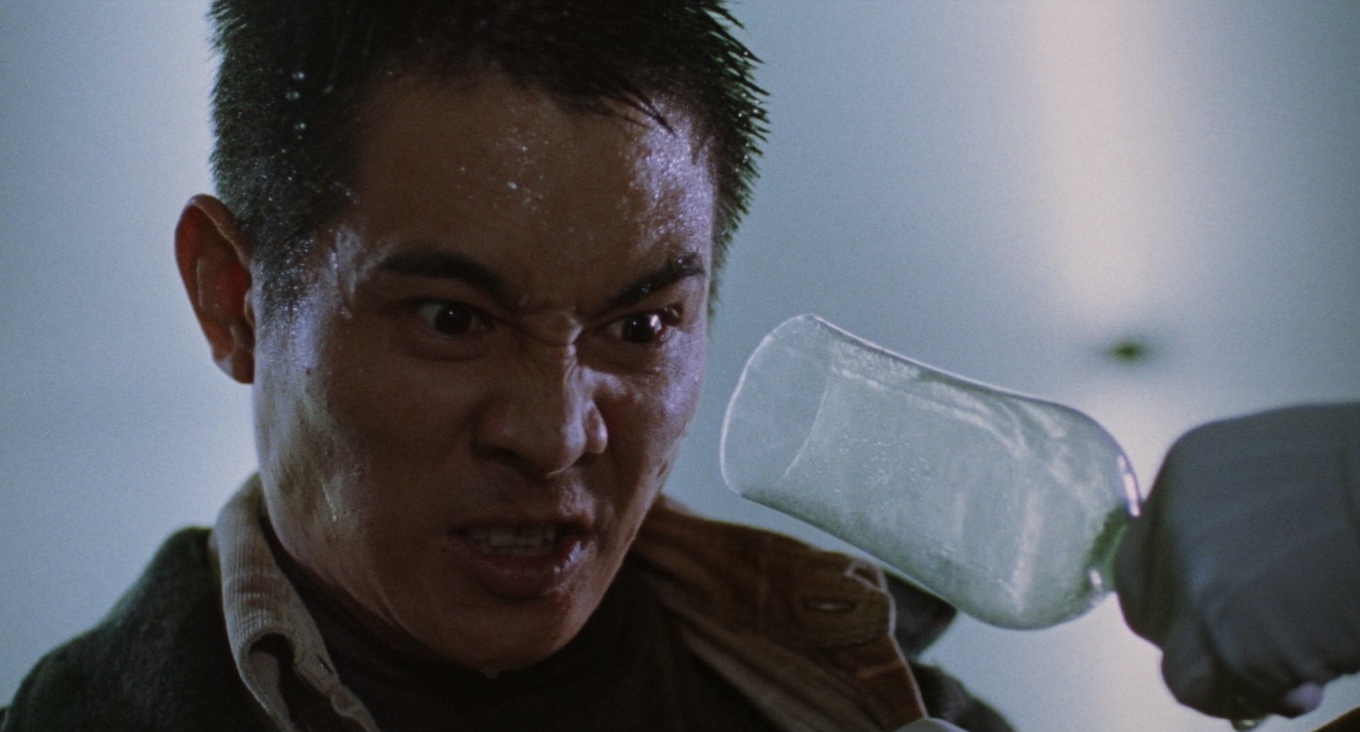

An undercover cop, struggling to provide for his son and ailing wife, must infiltrate a ruthless gang. But things turn sour when another cop blows his cover and he quickly finds himself battling for his life and the lives of his family.
Young Gung Gu (Xie Miao) is competing at a major martial arts tournament, but between rounds he scans the vast stadium audience and asks his mother (Nancy She Nan-Nan) about his father’s whereabouts. Meanwhile, Gung Wei (Jet Li) is amid a dodgy deal involving a large wad of cash and fake passports. As he wants to make it in time to see his son competing, he becomes somewhat impatient and, although outnumbered, decides to take on the rival gangsters instead of completing the deal. The ensuing back-alley brawl of one unarmed man against several axe-wielding adversaries gets things underway and is handled with a touch of comedy including Wei literally bagging a bad guy and making his getaway on a bicycle with the unconscious hostage in a sack slung over a shoulder, presumably to interrogate at leisure.
Peddling furiously, Wei manages to arrive just in time to watch from the overhead catwalks as his son reaches the final sparring round, bolstering the boy’s confidence and leading him to victory. But the fight follows Wei and more men with axes attack him high over the stadium audience in a tightly choreographed sequence of vertiginous acrobatics that goes a bit wrong with one of the bad guys falling into the stalls and Wei following to finish the fight… with help from his young son. Well, he did just win a major martial arts contest. However, when the security closes in, Wei disappears among the crowd leaving Gu to take lone credit for subduing the hoodlum.
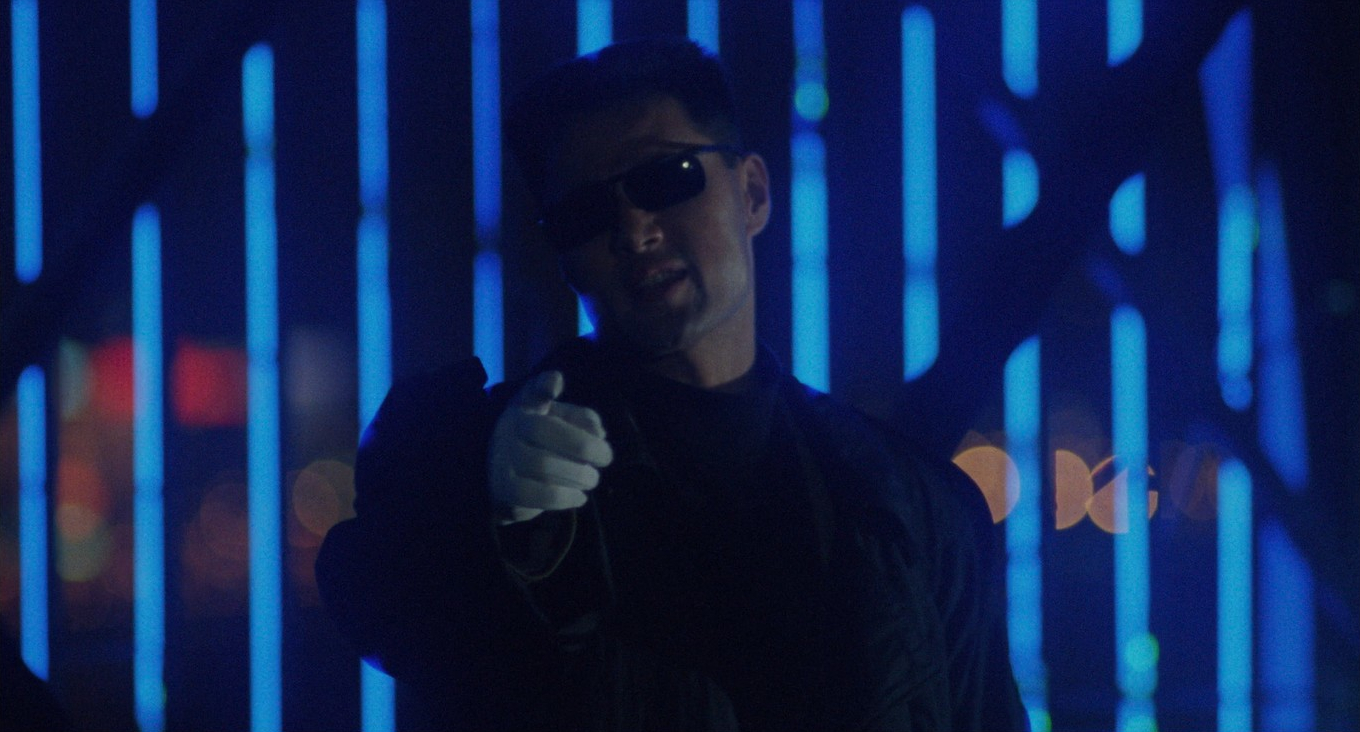
Within the first 10 minutes or so, the film has revealed its hand and made it clear what we’re in for: action-packed entertainment peppered with comedic elements, unexpectedly balanced with heartfelt pathos and tragedy. Aesthetically, it seems to draw upon a graphic novel aesthetic with plenty of shots that use architecture and contrast structurally. In his dual role of director and stunt coordinator, Corey Yuen realises that things must remain dynamic, even when fights aren’t happening, always trying to keep things interesting by shooting through objects, adding smoke to bring out lighting, framing scenes through rain-streaked windows, making use of silhouettes and shadows. He also realises that the central narrative is driven by the father-son bond and their unwavering trust in each other during several, often intense, life-or-death scenarios. Jet Li and Xie Miao had already developed a good rapport while filming The New Legend of Shaolin (1994), in which they also appear as father and son.
Some reviewers have problems with the young boy, Gu, standing up to adult hoodlums but that’s the core of the film—and not the only element that requires some suspension of disbelief. Besides, in real life, Jet Li was competing against adult opponents when he won his first national gold medal… age 11. So, perhaps it’s not so far-fetched after all that Xie Miao could hold his own as an eight-year-old. His skills certainly seem impressive and were clearly established during the title sequence in which he competes with hundreds of hopefuls to reach the final and triumph overall. It’s well worth sticking with the film for the outrageously acrobatic finale where father and son, outnumbered and outgunned, make a stand together.
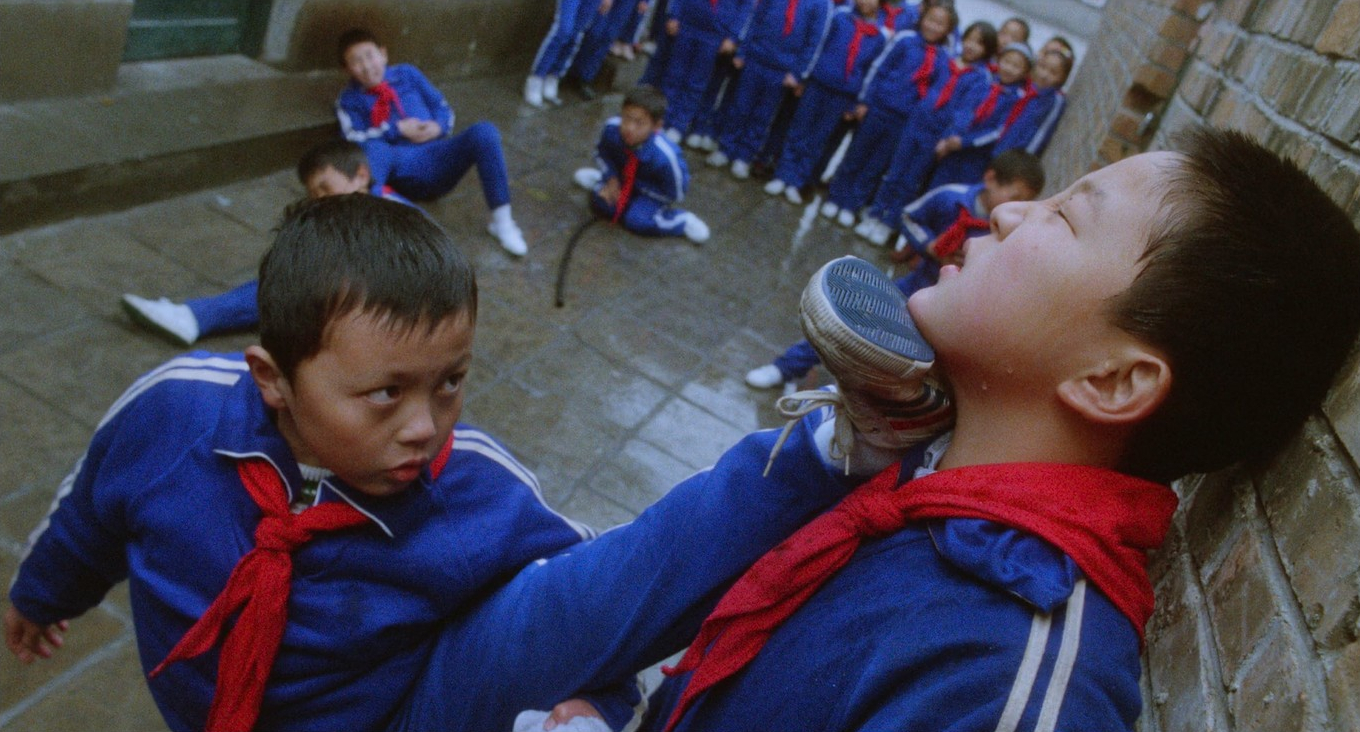
Nancy She Nan-Nan is mainly known as a stage actress with the National Theatre of China and has only made a dozen or so big screen appearances in supporting roles and never pursued stardom. Her classical theatre training serves her well and her scenes during the first act are effectively understated while conveying a layered character who loves her husband deeply although she suspects he’s leading a double life, keeping secrets from her and their son. The family live in poverty in a small apartment with washing facilities in the busy alley outside and Gu’s Mother is suffering from a long-term illness that requires treatment they are unable to afford. Apparently, this was to intentionally echo Jet Li’s own childhood growing up in a poor area of Beijing, until joining a martial arts school. I doubt this clear criticism of a Chinese State where healthcare is not accessible for the poor would’ve made it to the final cut of a film made in mainland China and could only be addressed explicitly in a Hong Kong movie in the 1990s, though it’s integral to the narrative.
There’s no doubt that Gung Wei is a family man and loves his ailing wife, but there’s also a frisson between him and undercover cop, Detective Fong (Anita Mui). During a botched heist in which Gung Wei inveigles himself into the Hong Kong gang, he’s forced to take Fong hostage. He’ll later save her life, arousing suspicions that he may not be quite what he seems. The detective is unusually tenacious in following a trail of tenuous clues, eventually leading her to Beijing and his family. In an unlikely, though interesting sub-plot, she finds herself undercover as an ‘aunty’ to young Gung Gu and develops a deep friendship with his mother.
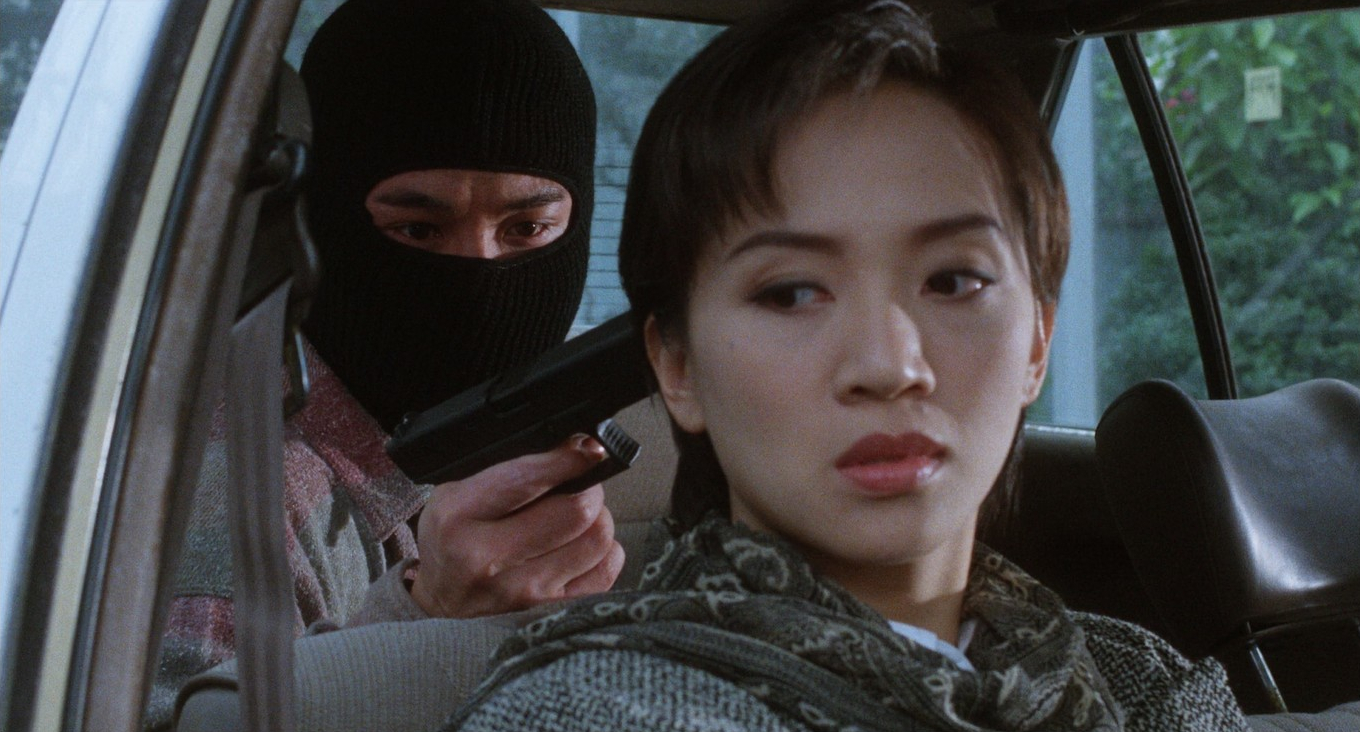
Anita Mui also turns in a layered performance as Fong re-evaluates her life from the new perspective gained from mixing with the Gung family and being impressed by Gung Wei’s unwavering dedication to duty. This was her third film with Corey Yuen, and was already a well-respected actress, having won Best Actress at both the 8th Hong Kong Film Awards and Taipei Golden Horse Awards for her role in Rouge (1987). She was also an established, multi-award-winning pop star, referred to as ‘China’s Madonna’ in the media.
The somewhat cheesy villain, Po Kwong (Rongguang Yu) looks more 1980s than ’90s, as if he’s just come back from auditioning to join Frankie Goes to Hollywood. Don’t get me wrong, Ronggaung is perfectly capable and gives us a memorable character as the arrogant, aggressive, immature man-boy. No one can argue with his martial arts skills, and he also carries off an array of ticks and odd gestures that emphasise his dangerous lack of inhibitions, affecting a neck ‘crick’ that’s a clear nod to Gary Oldman’s in Leon (1994). But we don’t get enough time to see the developing relationship between Po Kwong and Gung Wei. Sure, it’s an established trope for the undercover cop and gangster to develop mutual respect and even friendship—see predecessors State of Grace (1990) and Deep Cover (1992) for great examples. Here, though, we’re expected to accept they have bonded—at least Po Kwong believes they have—as a pivotal plot point that just doesn’t ring true. That this must be spelt out in dialogue during one of their third-act stand-offs only highlights this shortcoming and further challenges our suspension of disbelief.
Although flawed, The Enforcer / My Father is (a) Hero / Kap ba ba dik sung ultimately delivers what one would expect from a Hong Kong action thriller, hardly surprising with Corey Yuen at the helm. He’d already worked as stunt and fight coordinator on some 40 movies, including classics like Drunken Master (1978) and Zu: Warriors from the Magic Mountain (1983), and he’d directed Jet Li in three successful films: The Legend and its sequel The Legend of Fong Sai-Yuk 2 (both 1993)—with Li playing in the lead role of semi-mythical historical hero Fong Sai Yuk—also the contemporary crime thriller The Defender (1994). They would both go on to work outside Hong Kong cinema with Louis Leterrier and Luc Besson, Yuen as co-director and stunt choreographer on The Transporter (2002) and Li appearing as Danny in Unleashed (2005).
HONG KONG | 1995 | 104 MINUTES | 1.85:1 | COLOUR | CANTONESE • ENGLISH
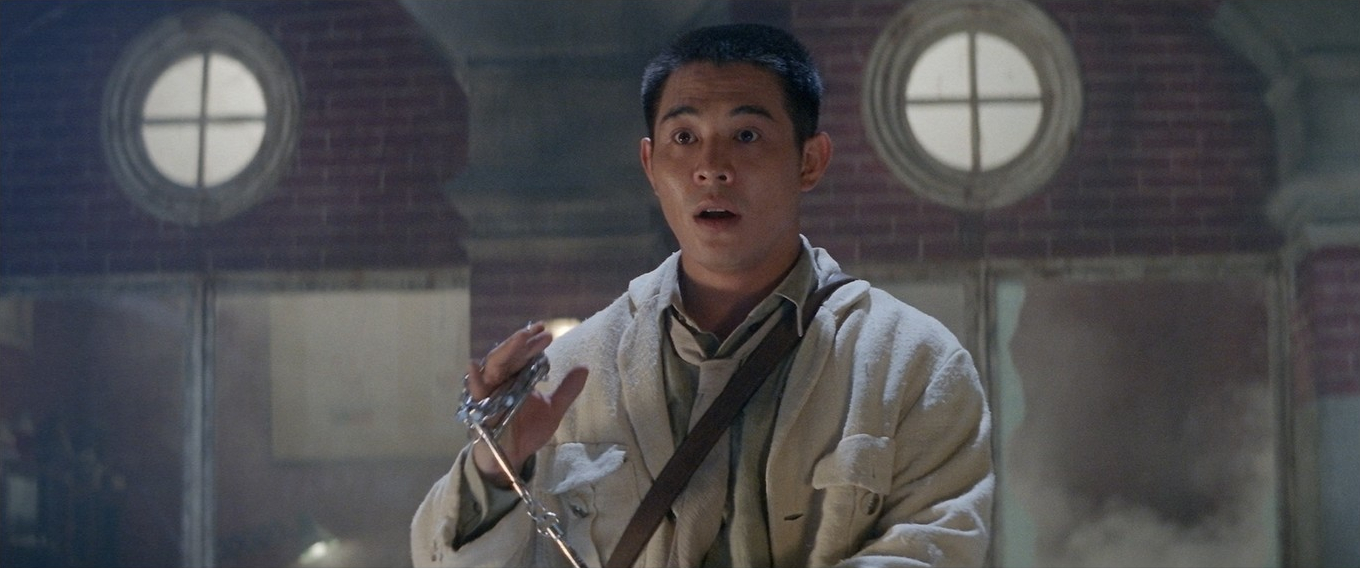

A serial adventure writer with problems in his personal life lives out the adventures of his literary hero, King of Adventurers.
Anyone familiar with director Ching Siu-tung’s Chinese Ghost Story trilogy (1987-1991) may know what to expect from this often ‘off-the-wall’ fantasy adventure. Think Indiana Jones with kung fu—and one gets the impression this was intended as the first in a similar Dr Wai franchise that never took off due to a production disaster and it’s confusing, though very entertaining, final product.
There are two, quite different, versions of Dr Wai in The Scripture with No Words / Mo him wong, and both are included in this Blu-ray box set. At the core of both, is a rollicking adventure set in the 1930s featuring the incredible exploits of Dr Wai (Li), also known as ‘The Adventure King’. During a striking opening scene, a self-proclaimed ‘mad scientist’ is within a giant ox automaton, attempting to operate what turns out to be an ancient war machine designed to roll over and crush anything or anyone who gets in its way and when the engines start working, it breaks loose and does exactly that to the many labourers who’d been pulling it through the desert. Enter ‘The Adventure King’ to save the day with some fancy horse-riding skills and lasso-work to divert the now fire-belching behemoth.
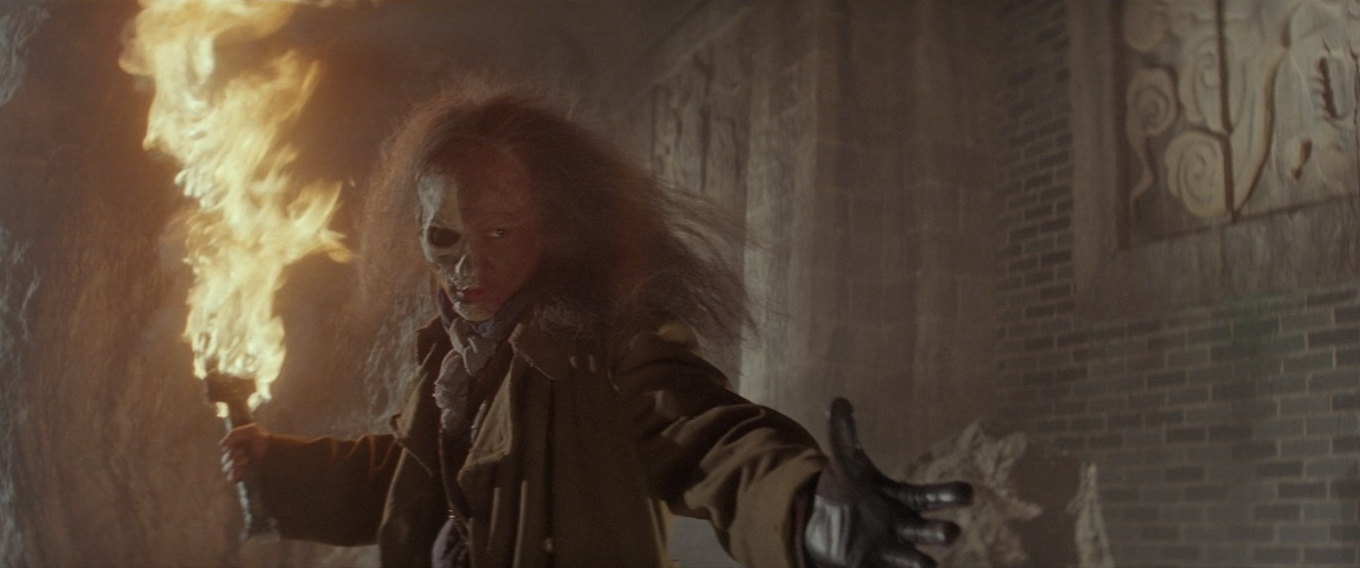
A voiceover embellishes the action and we, eventually, gather the narrator is Shing (Takeshi Kaneshiro) who joins Dr Wai as an apprentice, signing up for a dangerous mission to infiltrate the Japanese Consulate and purloin a mythical artefact that can either decimate armies or bestow superpowers. It later becomes evident that this supernatural object is a metaphor for the dawn of the nuclear age.
Wai and Shing manage to slip into the Consulate during a gala evening event dressed as women and, while fending off the amorous advances of various male guests, Wai is befriended by Kamiko (Rosamund Kwan) who later helps him escape capture. But, just as our heroes are in drag to disguise their identities, things are never what they appear to be… Turns out the Japanese don’t have the magical item itself, only a map of its whereabouts and Kamiko is actually General Yu Fung, a high-ranking Japanese spy who planned for the map to be stolen by Wai and Shing so they can take all the risks within China. Should the adventurers be successful in their quest, then her Japanese agents, will be on hand to take the ‘scripture with no words’ off theirs. Basically, it’s a convoluted, MacGuffin-driven story that presents plenty of opportunity for non-stop action and comedic antics, often combined. Not unlike Raiders of the Lost Ark (1980), but with the invading Japanese instead of Nazis.
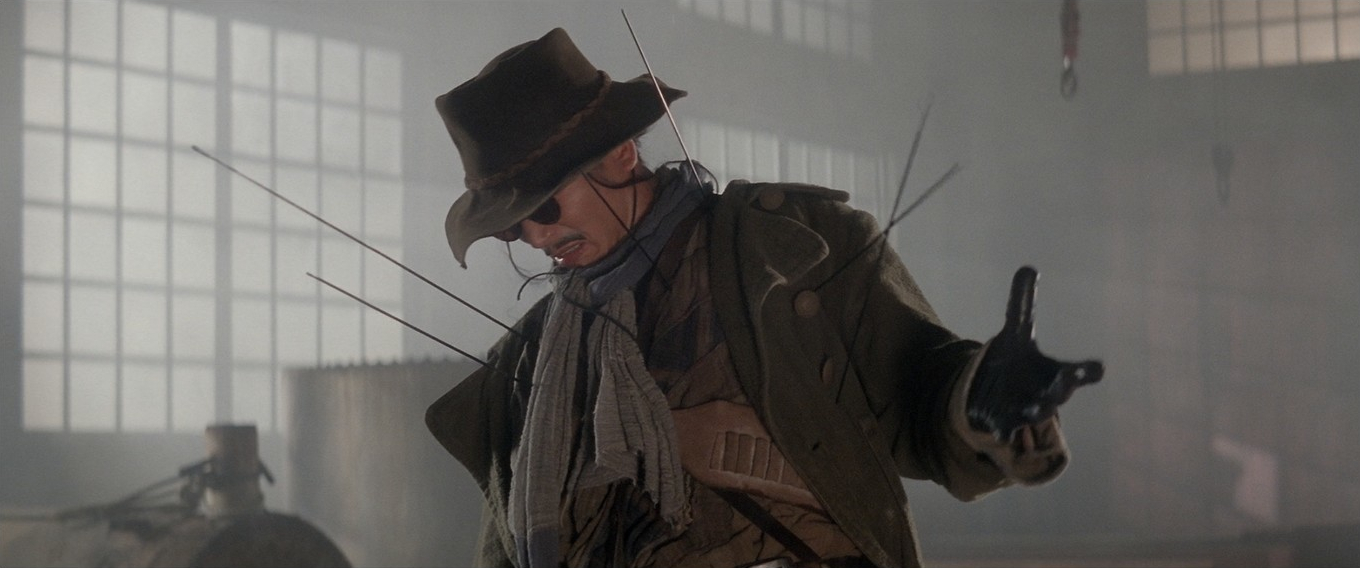
The first clue on the map leads our heroes to a radical newspaper, arriving just as Japanese supporters attempt to firebomb the premises. After demonstrating their kung fu prowess they’re hired by the editor (Kar-Ying Law) to protect his office and staff. Here, Shing finds a romantic interest in Yanyan (Charlie Yeung). Together, the team locates a sacred ‘box of delights’ hidden in a secret chamber which purports to hold the fabled ‘scripture with no words’, but what it actually contains is some sort of magical power that can consume whoever opens it or, as we have seen in flashbacks, burn and entire army to dust. In one of the wackiest action sequences, Wai and Shing must fend off enemy agents while also combatting a giant, wonderfully unconvincing puppet rat, mutated by prolonged proximity to the box. We also learn that those affected by the power may have a limited lifespan, eventually dissipating into tiny spheres via some inventive, though now-dated, digital VFX.
Plenty of outrageous fight scenes follow, involving fountain pens that fire grappling hooks, random sumo wrestlers, a runaway train, and a climactic airborne battle on a plummeting plane with a superhuman monster created by the box. Further clues eventually lead the adventurers to the Great Wall and a hidden temple within. Who doesn’t love a secret temple? Dr Wai and the Scripture with No Words may not be perfect, but it’s certainly a fast-moving romp and by far the silliest, though most fun, of the three movies here.
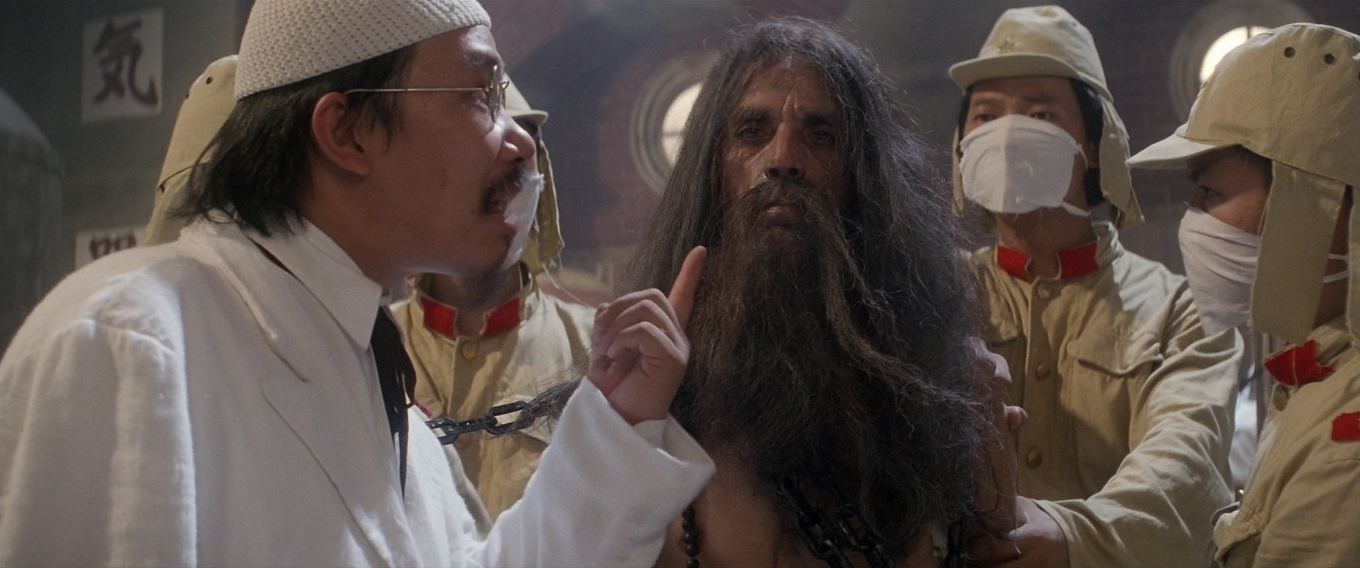
The narrative seems fractured, which keeps things interesting and fast-moving throughout, but it seems a framing story was intended where an older Shing recounts the story to his son in a way that gradually reveals that he’s the sidekick of ‘The Adventure King’, or one of his descendants. Alas, before filming was complete a serious fire at the studios destroyed the sets and Ching Siu-tung was faced with the challenge of rescuing his film either by re-thinking what was already in the can, re-cutting the story to make sense with what he had, or filming an entirely different framing story.
He tried both approaches. Editing the international version using only the 1930s period setting, he added a pre-title spiel and extra narration to fill in the gaps. Also, he reworked his domestic theatrical version, scripting a new modern-day story element and shooting that using the same cast. Here, it can become a bit confusing as character names in the ‘fiction’ and the ‘real’ differ depending on print and even between dialogue and subtitles.
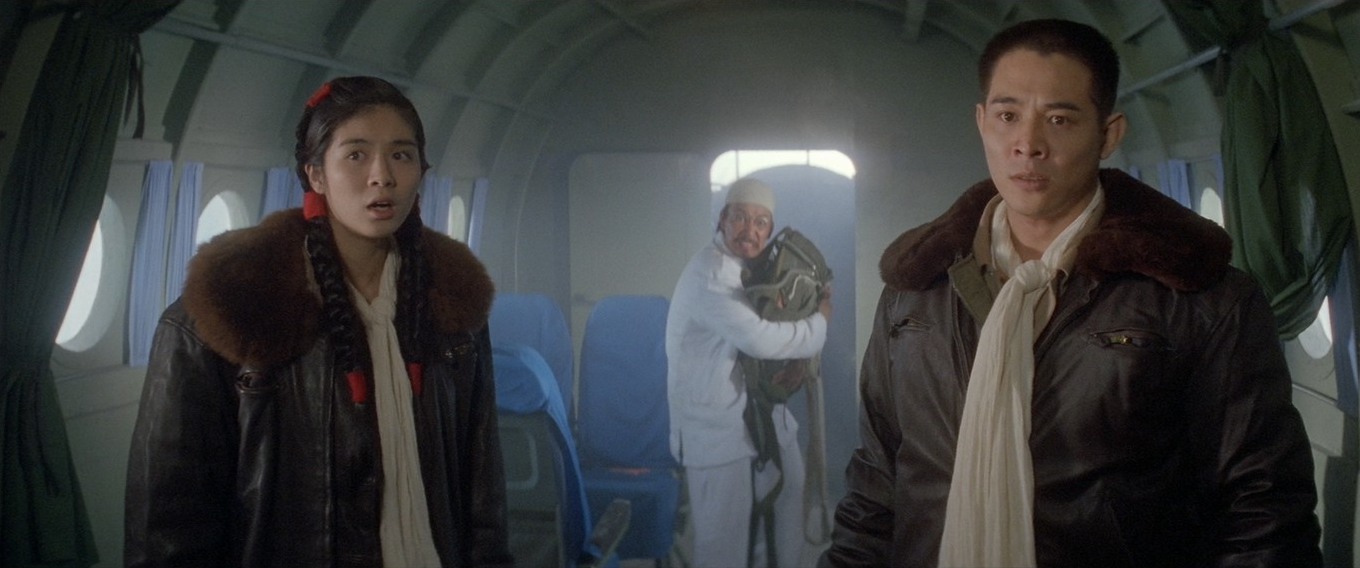
In the new framing story, Chow Si-kit (Li) is a seasoned author of serialised adventure stories for a newspaper but, due to the stresses of his failing marriage and looming divorce, he has a bad case of writer’s block. He can’t seem to write anything fresh that doesn’t reflect his sad real-life travails and has written his soon-to-be ex-wife, Monica (Rosamund Kwan) as the villain, Kamiko. While he spends more and more time away from his desk drowning his sorrows, two young office colleagues (Charlie Yeung and Takeshi Kaneshiro) read over what he’s already keyed in and begin inserting prompts and ‘improving’ scenes that change the trajectory of his narrative, steering the story toward more positive outcomes for the characters. Their interventions push him past his block and, eventually, reality begins to reflect the fiction with Chow Si-kit seemingly heading for a reconciliation with his wife after all.
I found the domestic Chinese ‘Director’s Cut’ with its added meta-fiction most satisfying, and I appreciated how the concept of the unwritten manuscript also resonates with the titular scripture. However, the ending is different in each version of Dr Wai and, surprisingly, the version with the added framing story is a little shorter, with the period scenes trimmed, so it’s worth watching both. While each is as bonkers and entertaining as the other, the international release adds a more sombre note to the finale in which the characters are faced with a glimpse of the future. Their joy at knowing Japan eventually loses the war is short-lived as their visions include the death and destruction in the wake of the atomic bomb blasts. They realise that in war, no one really wins, that victory for some means defeat for others and triumphs can only come from tragedies. The Chinese theatrical version touches on the same message, but also provides much more satisfying conclusions for the characters and ends on a lighter note, in keeping with the rest of the story.
HONG KONG | 1996 | 91 MINUTES | 2.35:1 | COLOUR | CANTONESE
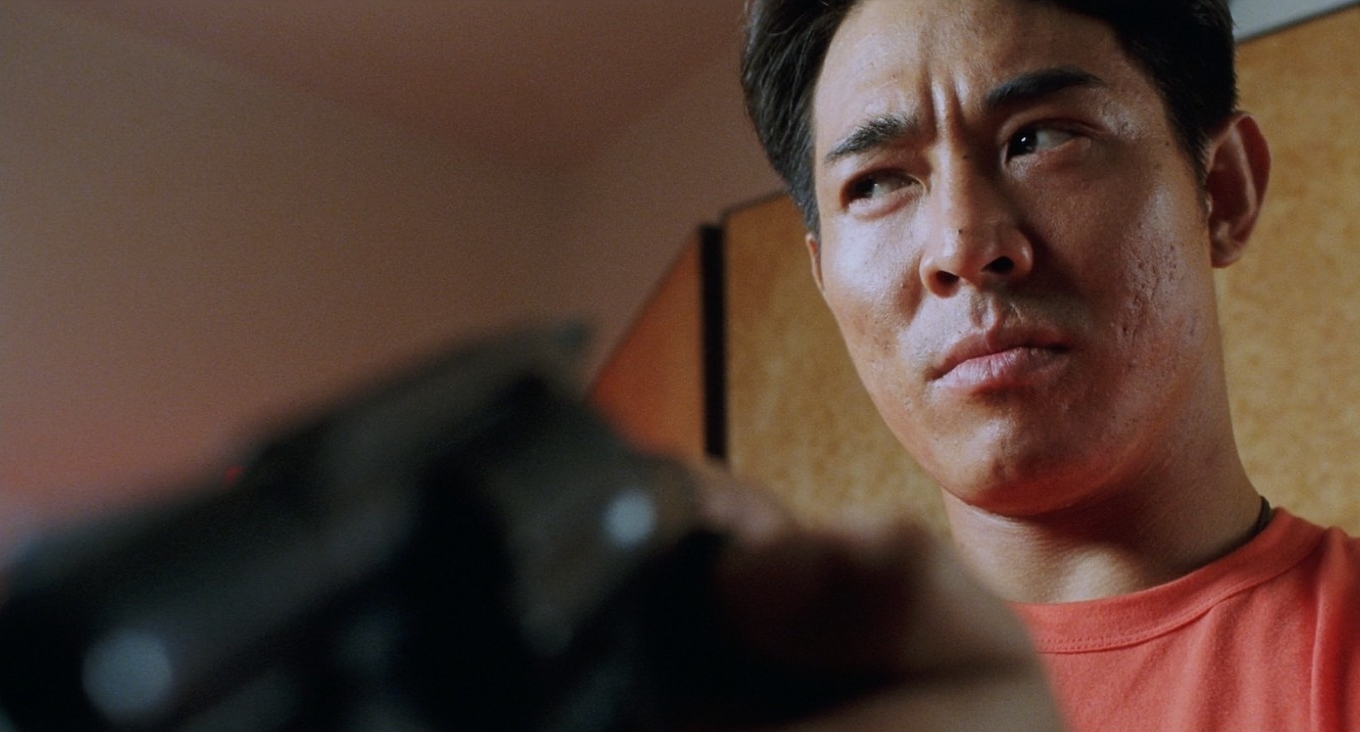

Two hitmen, one a novice and the other a veteran with poor luck, band together to find the “King of Killers” for whom there is a large reward.
Probably the most solid and well-formed film of the three titles here, Hitman / Contract Killer is a slick, well-plotted thriller with meticulously planned and executed fight sequences. The action is impressive but isn’t dominant over the story and there are a few plot reveals that I, for one, didn’t see coming. So, I won’t be giving those away in this review.
It’s another Chinese film where the Japanese are ‘one size fits all’ off-the-peg villains and we open with a nasty businessman, Tsukamoto (Kenji Sahara), with a bottle of warm sake and two young ladies as he explains to them that he likes Chinese girls better than Japanese because they’re more compliant to his needs and never complain about the pain. Meanwhile, a masked man in all-black special forces gear is disabling the CCTV as he goes and takes down, by non-lethal means, all the guards and personnel in the building, working his way methodically up to the penthouse.
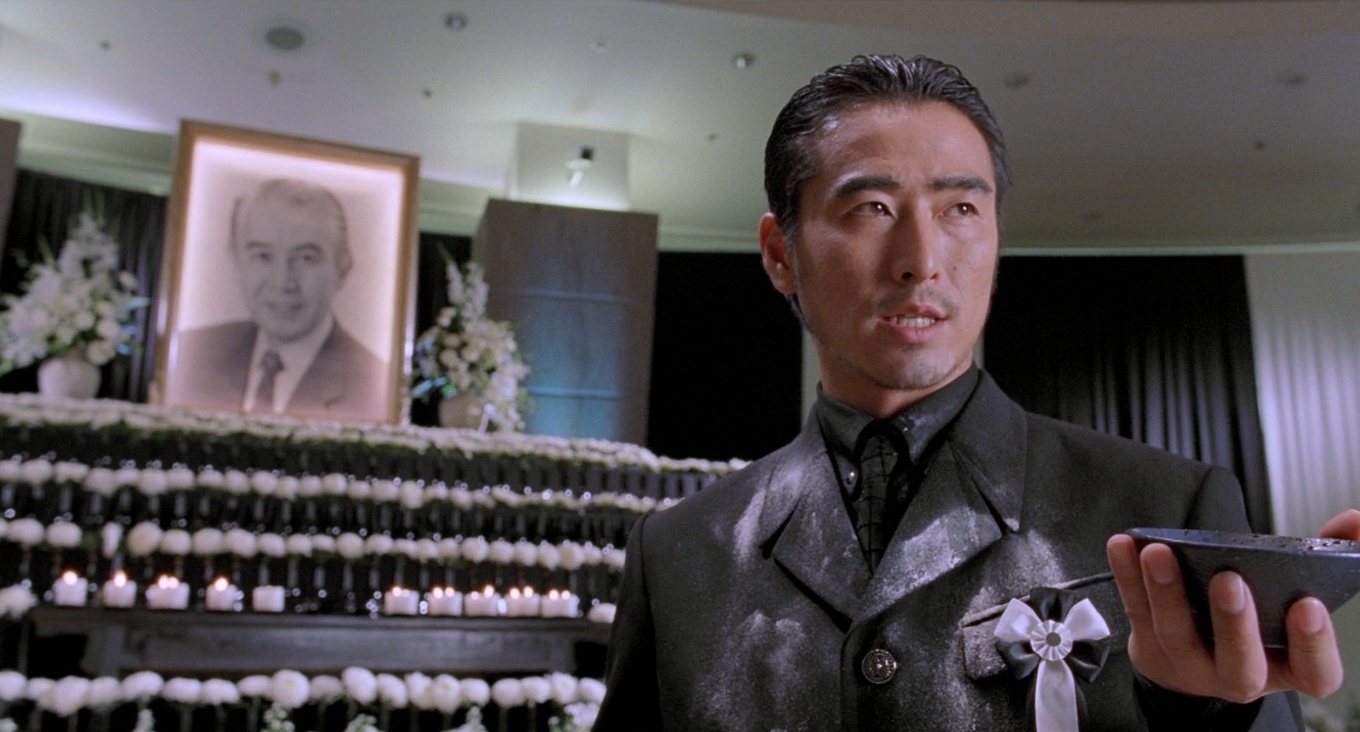
Asian film fans will enjoy this cameo by Kenji Sahara playing against character, perhaps recognising him from his string of appearances in many films for director Ishirô Honda including many of Toho’s Godzilla movies going right back to the first in 1954. When his security is finally compromised, Tsukamoto simply executes the two women he was enjoying and confronts his anonymous assailant from behind a wall of bullet-proof glass offering to more than double whatever he’s being paid before resorting to threats and stating that he’s already set aside millions of dollars for a ‘revenge fund’ bounty, should he ever be killed. The only reply from the assassin is to repeatedly shoot the bulletproof glass, with bigger than average ammunition, until it finally shatters… and that’s the end of Mr rich, racist, and sexist, Tsukamoto.
However, at his funeral ceremony his son, Eiji assumes control of the company by eating his father’s ashes so his soul will live on. Swearing vengeance, he sets about releasing the ‘revenge fund’, bringing together an array of bounty hunters and assassins in a rather bureaucratic meeting involving foppish lawyer Martin (Kwong-Kim Yip) to explain the details and how to qualify for the payout—it could almost be a reality TV game show. It’s thought that the anonymous executioner is a vigilante who targets high-profile criminals that would otherwise remain ‘above the law’. If one watches the English-language dub, he’s known as the ‘Angel of Death’, or ‘Blazing Angel’ in the subtitles, and is sometimes referred to as ‘King of Killers’.
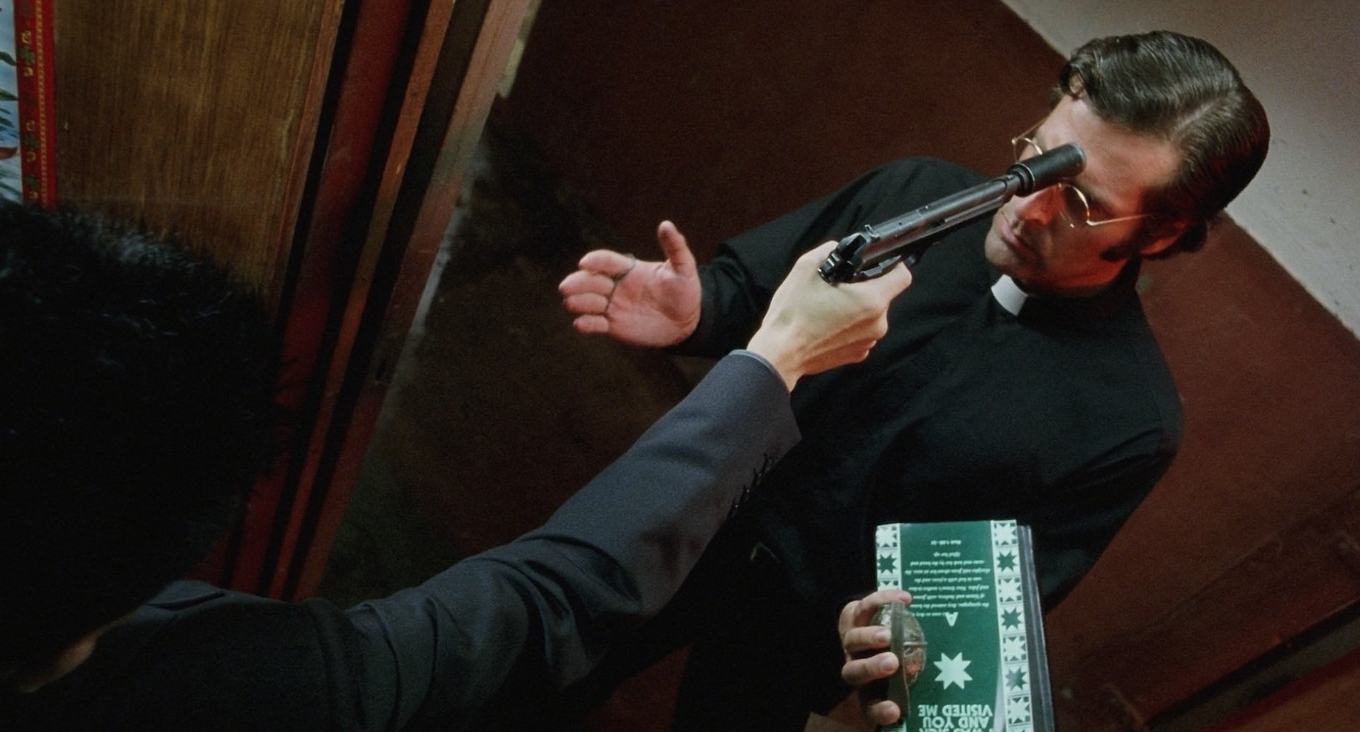
Although he’s only killed criminals, so far, he’s still considered a murderer and is being hunted by dedicated policeman, Chan Kwan (Simon Yam)—a touch of Batman and Commissioner Gordon, perhaps? Although the Angel of Death had disabled the CCTV cameras efficiently, there is one brief snippet of him walking along a corridor. Now, as he managed to disable the cameras so efficiently, the police deduced he knew where they were and must’ve cased the building beforehand. So, there may already be a video of him when he wasn’t wearing his mask and combat gear. Kwan sets up a computer system to run gait analysis comparing the walk, musculature, and skeletal proportions of the killer with all those captured by what was a newly installed surveillance system. It’s a laborious process that may take days to run, but it’s a nice narrative device that introduces a countdown to when the Angel of Death’s identity may be revealed.
By the end of the first act, there’s only been one small brawl, but we’ve been introduced to a collection of characters. Fu (Li) is a down-on-his-luck ex-soldier of The Golden Triangle, which is an ambiguous term that usually refers to an area known for its history of opium trade. He’s flat-sharing with a bunch of petty criminals who draw his attention to the call-out for hired killers. He’s come to Hong Kong to make enough money to care for his mother and buy her a house, so the large sum of money on offer tempts him to follow his colleagues to the meeting. Because he’s not a known assassin, he’s refused admittance but when he successfully resists with a display of impressive kung fu, he catches the eye of Ngok Lo (Eric Tsang) a conman and small-time criminal who steps up, claiming to be his manager.
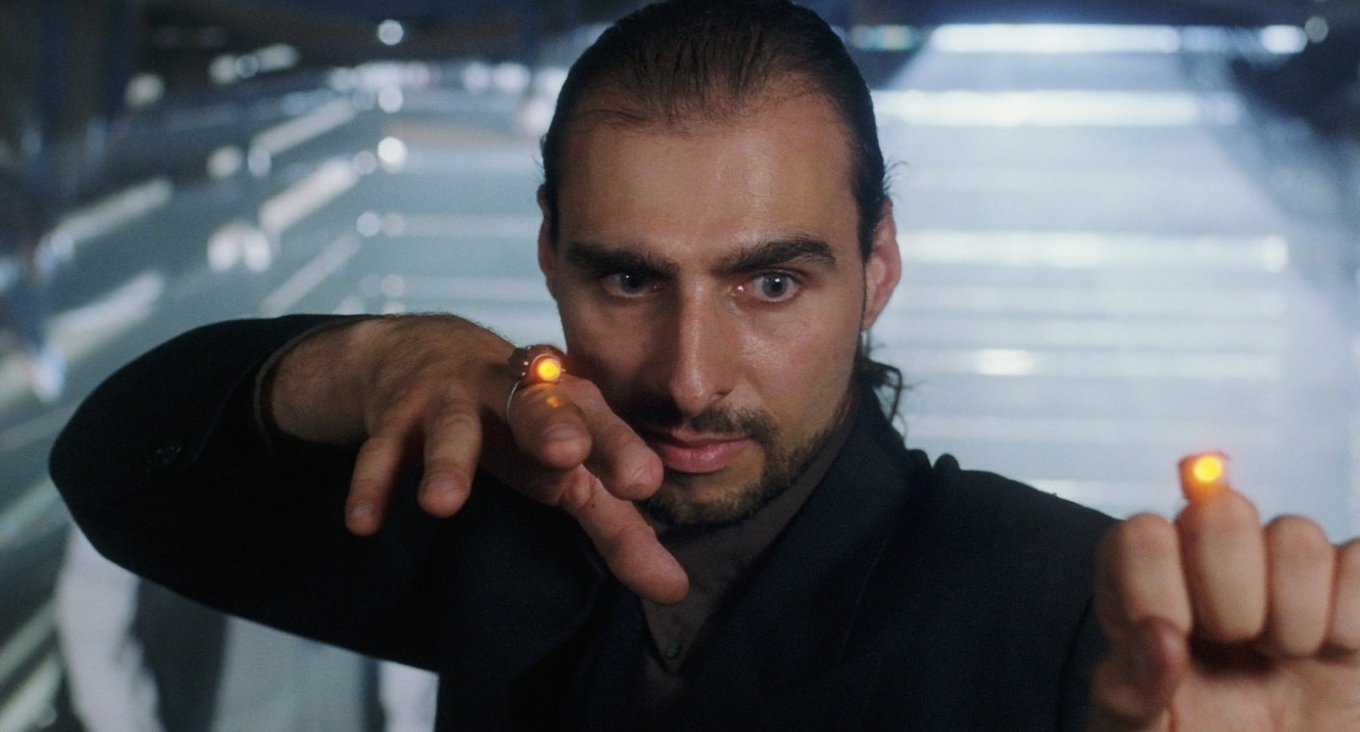
Lo invests plenty of cash to make Fu look the part, taking him shopping for suits in a montage that plays with several hitman tropes as Fu tries on stereotypical gangster and assassin styles. It’s played for laughs and one can enjoy spotting the recognisable hitmen looks from other movies. This is just one of many humorous scenes that knowingly reference assassin movie tropes—but the comedic elements don’t get in the way of a well-crafted plot and some serious, though often jovial, violence. Director Stephen Wei Tung works hard to make each scene as interesting as possible with plenty of dynamic angles, inventive use of reflections, and different focal depths often in difficult environments with not so much room to manoeuvre.
After their shopping spree, Fu follows Lo home and meets his daughter Kiki (Gigi Leung) who is about to graduate from law school and is the polar opposite of her father. Also, their apartment isn’t quite in keeping with Lo being the big-time gang boss he pretends to be. However, he does sign Fu up for a contract killing to raise money to fund their operation to track down the Angel of Death… Fu is ordered to execute a target who’s with his son at a funfair but when it comes to the crunch, he ends up defending the target and the innocent bystanders against some of his flatmates that we met earlier. Ironically, he’s rewarded handsomely by the man he was sent to kill.
This spectacular shoot-out is the first of several action set pieces. Perhaps the most impressive and memorable involves a shoot-out that morphs into an acrobatic three-way kung fu fight in a lift shaft, utilising the elevators in motion along with their cables and deadly counterweights. Or maybe the times Fu takes on a rival assassin who’s not only unusually tall but uses dastardly laser gadgets concealed about his person that can disorientate opponents. This is Paul Rapovski, a seasoned stuntman and champion martial artist who we also saw in The Enforcer as a gun-wielding Lithuanian gangster. Here, he’s given a bigger role that could’ve come from a classic James Bond movie. And I won’t give too much away about the finale, but the action certainly ramps up incrementally throughout and is always impressively choreographed and clearly conveyed.
HONG KONG | 1998 | 104 MINUTES | 1.85:1 | COLOUR | CANTONESE JAPANESE • ENGLISH • MANDARIN

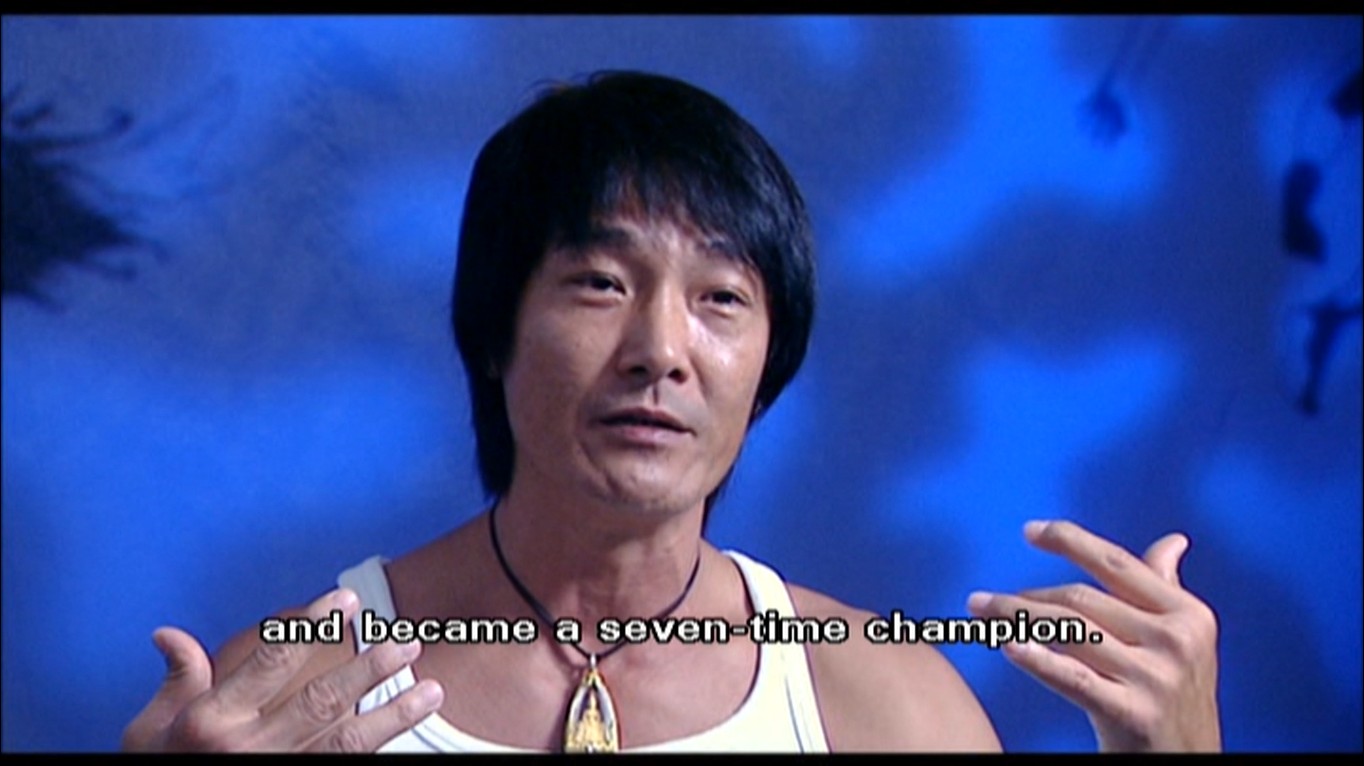
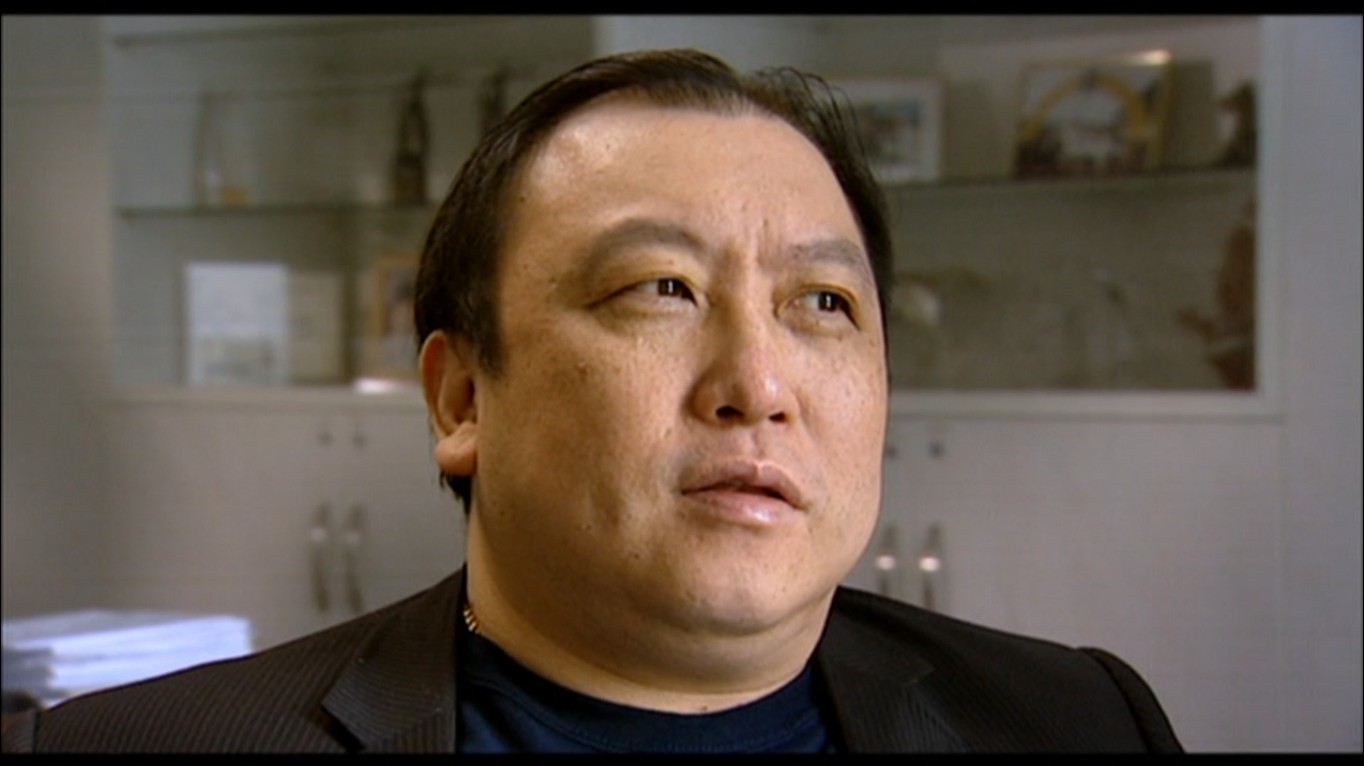
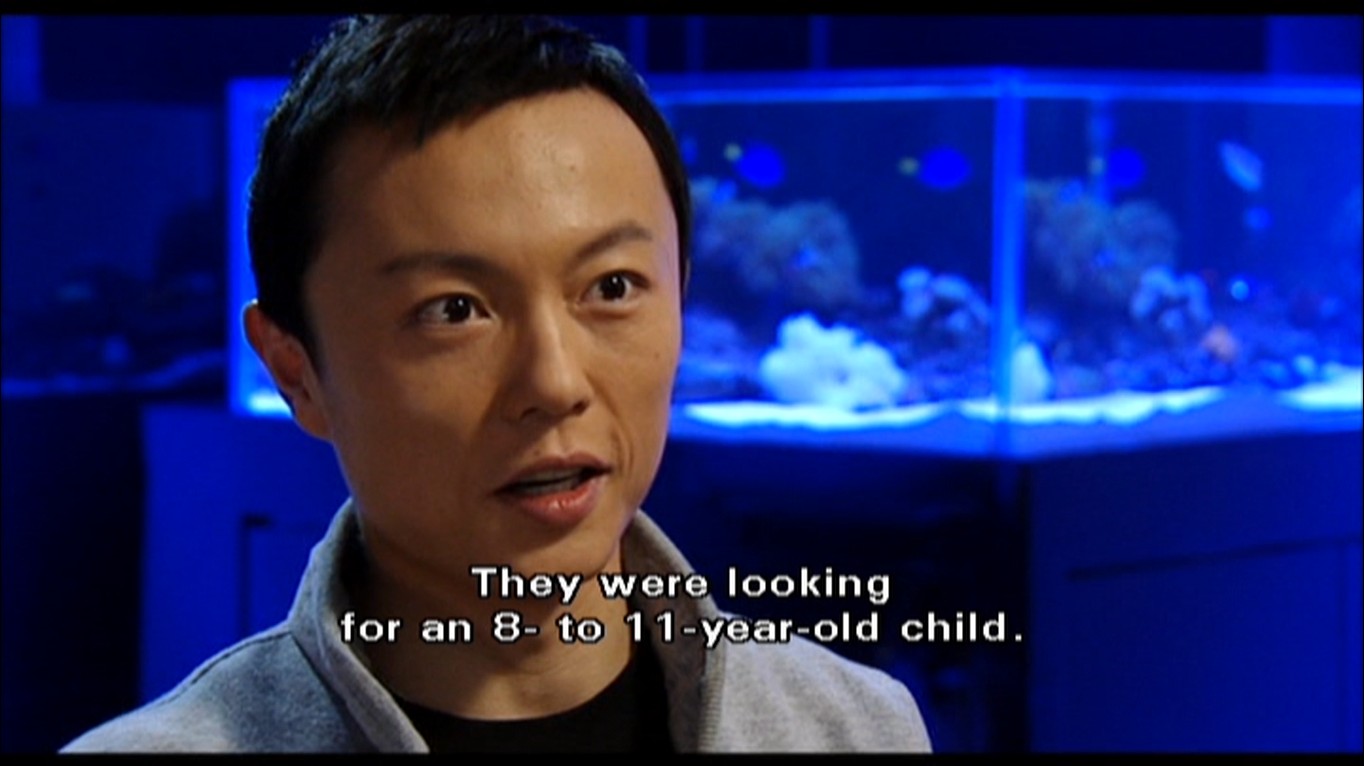
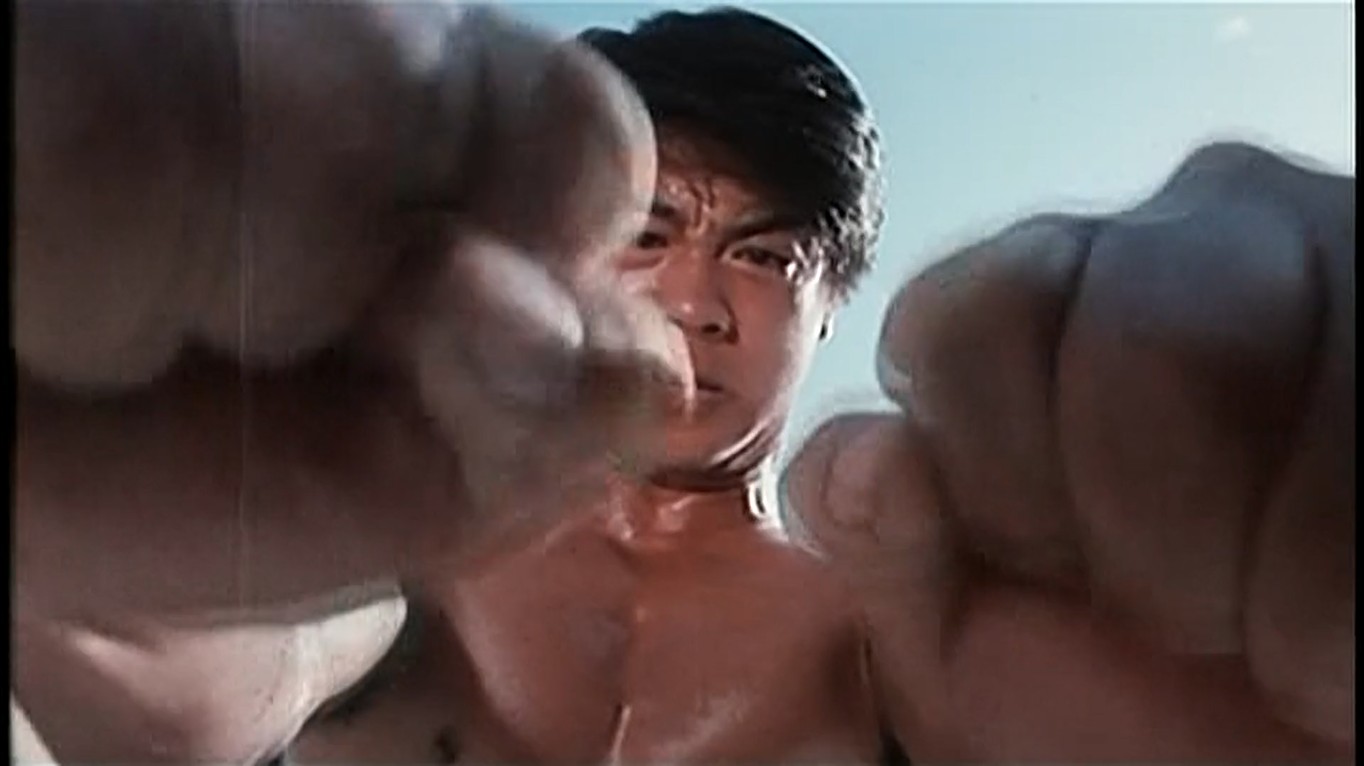
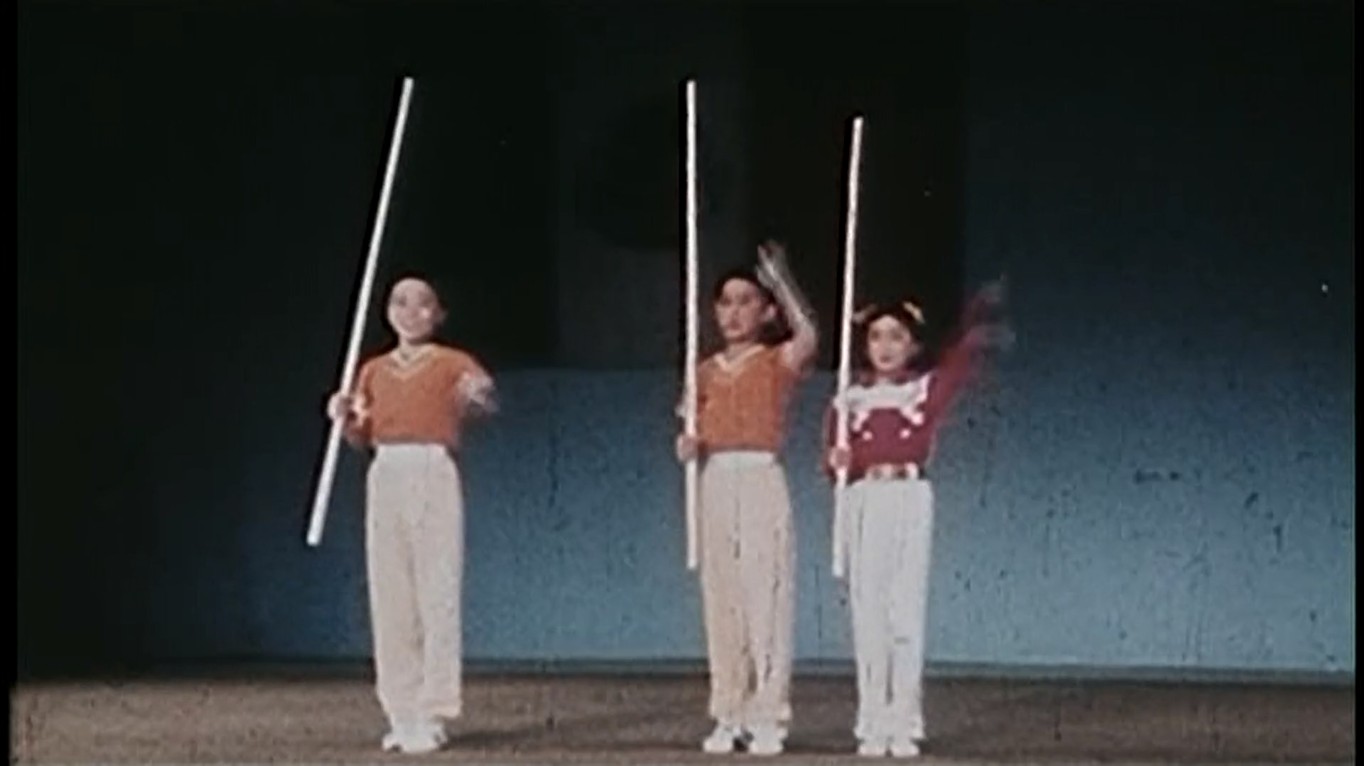
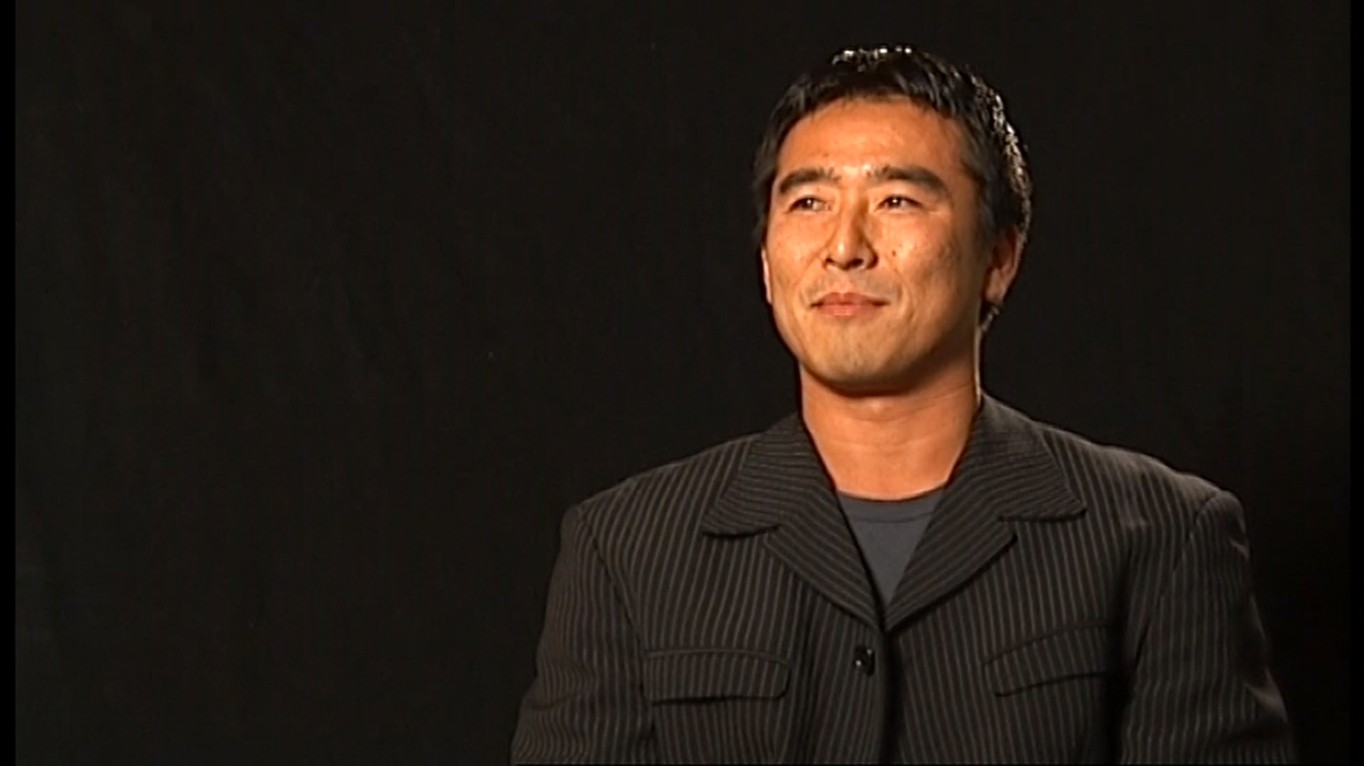
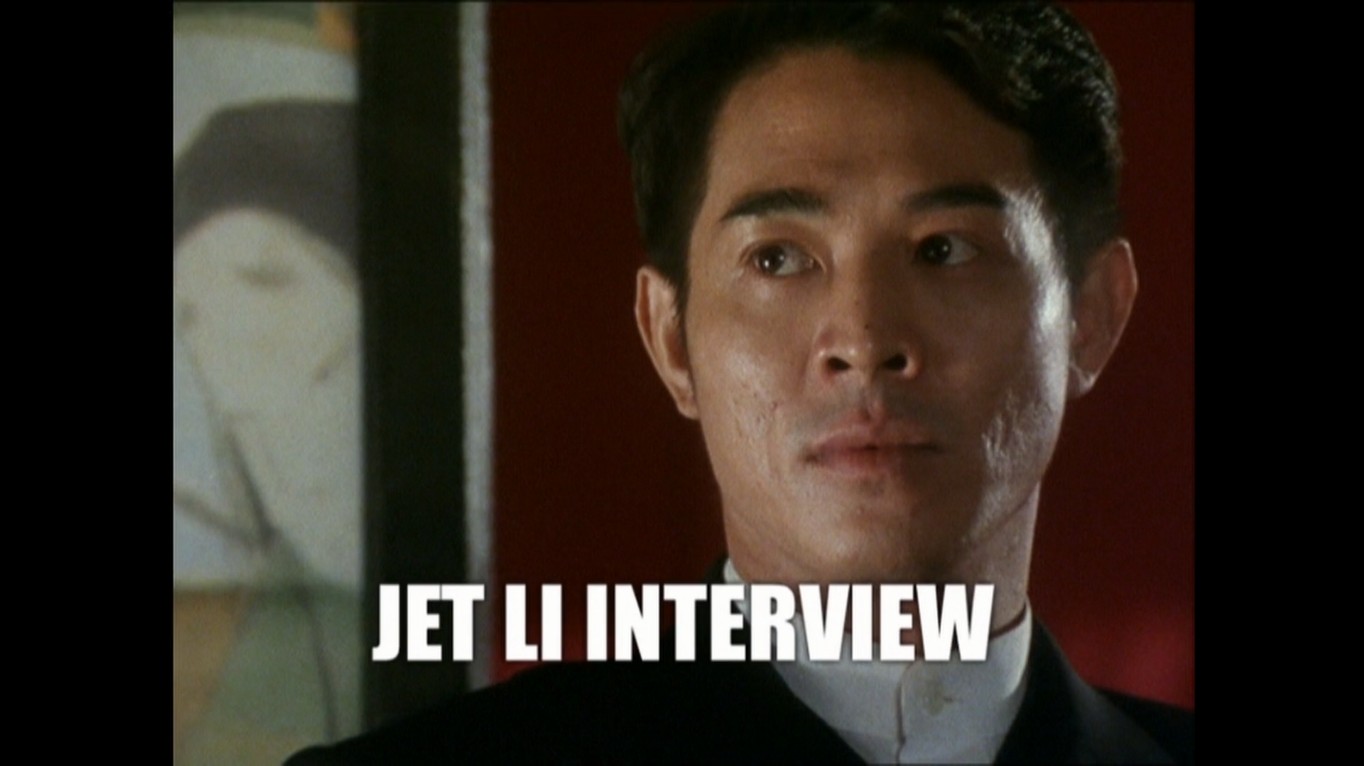
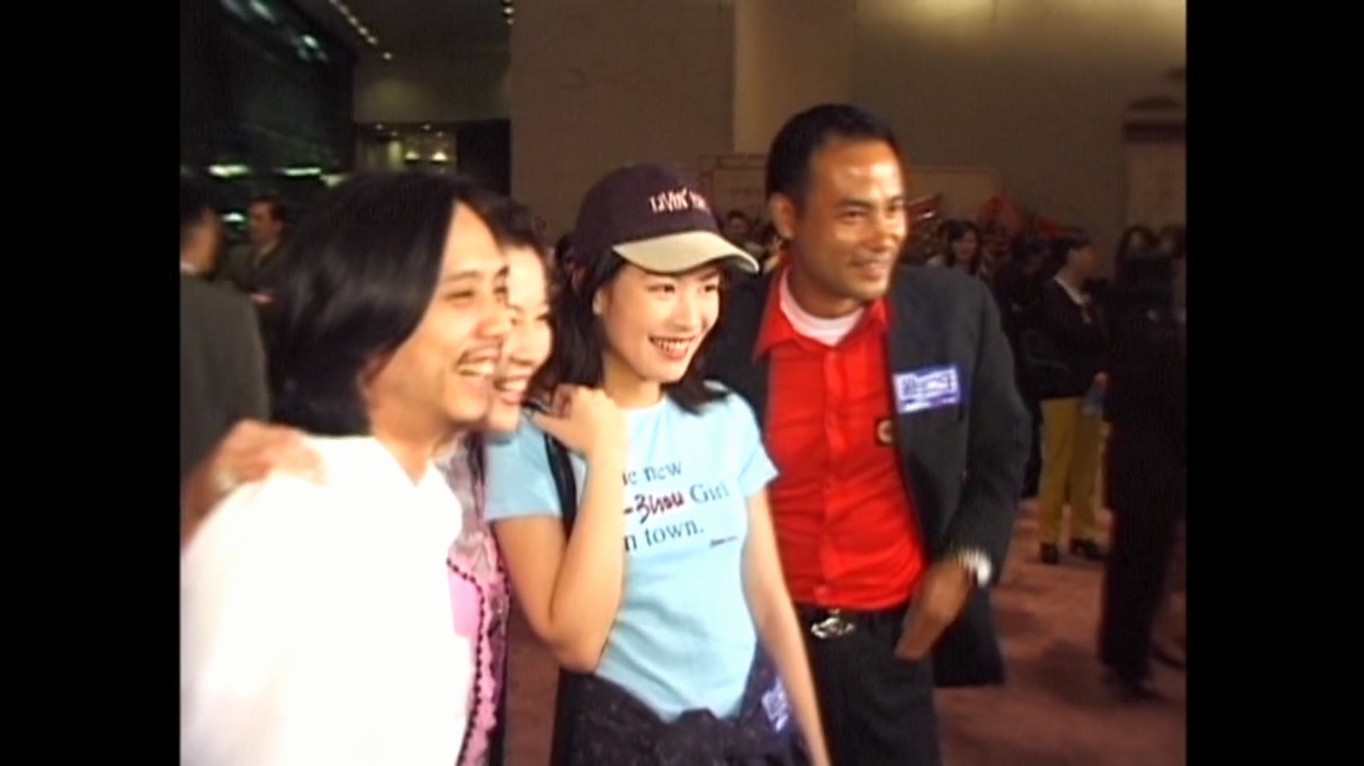
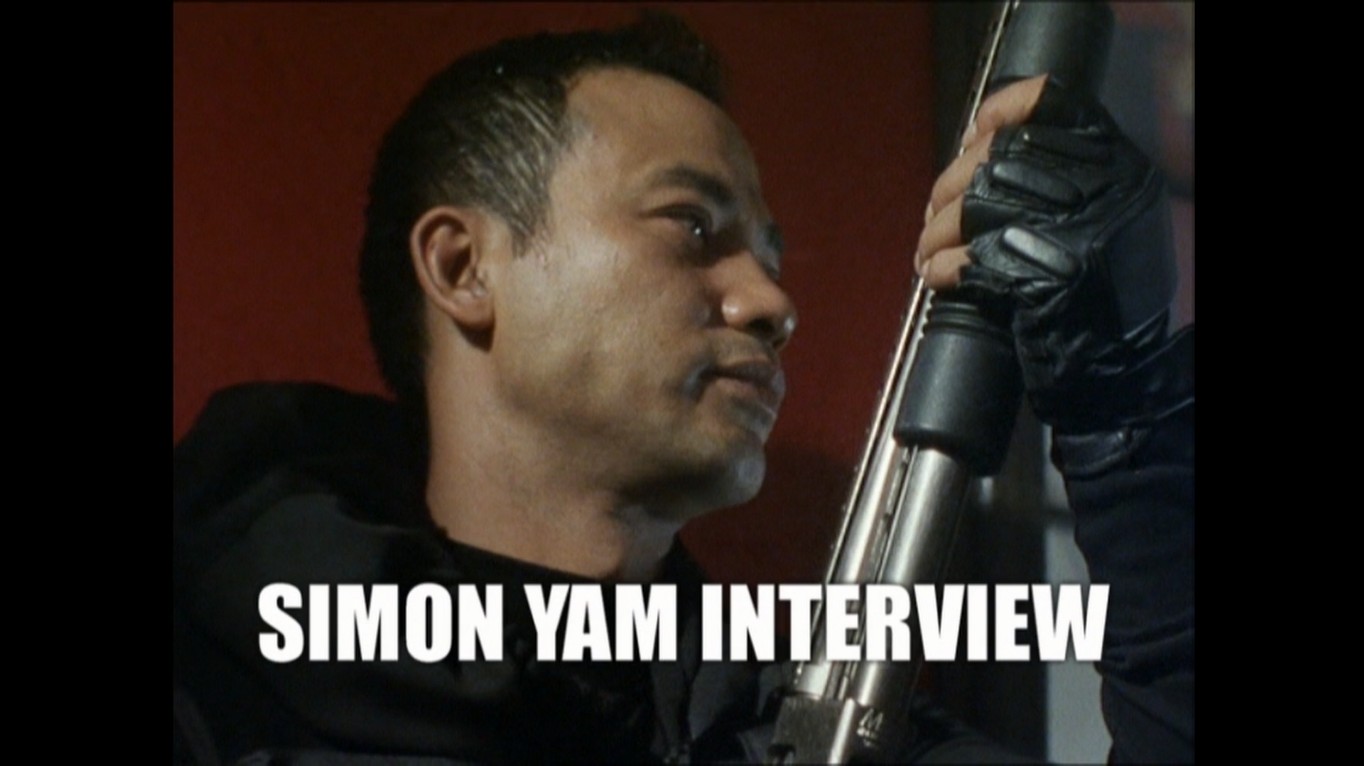

directors: Corey Yuen (Enforcer) • Ching Siu-tung (Wai) • Stephen Wei Tung (Hitman).
writers: Sandy Shaw & Jing Wong (Enforcer) • Wai-Lun Lam, Sandy Shaw & Cheuk-Hon Szeto (Wai) • Hing-Ka Chan, Kam Fu Cheng & Vincent Kok (Hitman)
starring: Jet Li with… Anita Mui, Xie Miao, Rongguang Yu (Enforcer) • Rosamund Kwan, Takeshi Kaneshiro & Charlie Yeung (Wai) • Eric Tsang, Simon Yam, Gigi Leung & Keiji Sato (Hitman).
